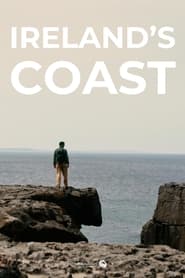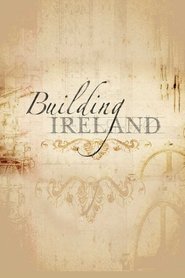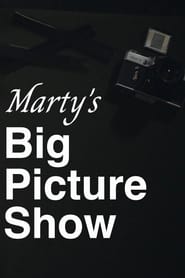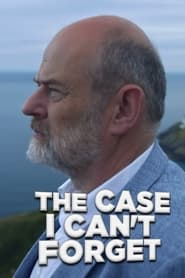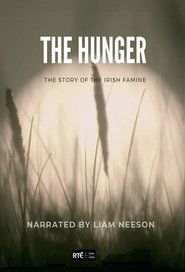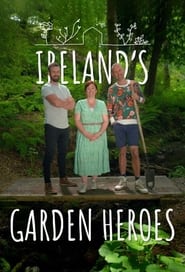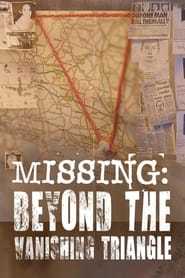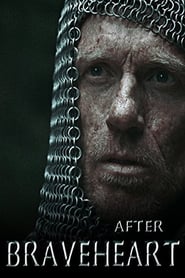Rt Eacute One TV Series - Page 7
-
Fáilte Towers
2008
Fáilte Towers
2008
Fáilte Towers was an RTÉ reality TV show that was broadcast as a one off during August 2008. The concept of the show involves thirteen celebrities running a hotel for sixteen days and nights in order to win money for their designated charities. The show format was not repeated nor was it exported or resold. The name is a play on the BBC sitcom Fawlty Towers: and the word Fáilte meaning "welcome" in Irish. The hotel used in the series is Bellingham Castle in Castlebellingham, County Louth. The show is presented by Aidan Power and Baz Ashmawy and the judges are Bibi Baskin, Dublin restaurateur Derry Clarke and Castle Leslie hotelier Sammy Leslie. Each night the public are invited to vote for the contestant they would like to stay in the show. At the end of the show one of the contestants must "check out". The presenters tell each of the contestants individually if they are "safe" and if so are ordered "back to work". The three remaining contestants are then marched into the Oliver Plunkett Suite -
Ireland's Coast
2024
star 8A three-part documentary series that journeys to the heart of Ireland's coast, revealing its fascinating origins, rich biodiversity and magnetic charm. -
Donal's Road Trip
2022
Donal's Road Trip
2022
Donal Skehan sets off on a food-filled road trip around Ireland, ticking off some culinary hotspots on his foodie bucket list. -
Building Ireland
2014
Building Ireland
2014
A team of expert presenters in engineering, architecture and geography explore some of the finest example of Ireland’s building and engineering heritage. -
Marty's Big Picture Show
2023
Marty Morrissey and Liz Gillis uncover the work of Ireland’s photographers. Focusing on a different archive, they travel the country, uncovering the stories behind the pictures. -
Martin's Mad About Fish
2010
Martin Shanahan shows that anyone can cook simple tasty seafood at home. -
Callan Kicks The Year 2024
2024
star 8From Brat Summer to Kamala’s collapse and Sinn Féin scandals to Simon Harris’ viral disaster, everything worth laughing about features in this essential look back on 2024. -
Firefighters
2012
Firefighters
2012
Dublin Fire Brigade and ambulance services receive around 133,000 calls a year. Whatever the emergency, whenever it happens, the firefighters are first to respond, putting themselves in danger to save lives. And it’s not just fighting fires. Every member of Dublin Fire and Rescue is a trained paramedic, and whether it’s ambulance services, rapid river rescues, marine emergency response or high line rescues that are called for, they're equipped and trained to give people in need of rescue the best chance of survival. Using state of the art technology including vehicle and helmet mounted cameras this series will bring viewers deep into the heart of the fire scene with the firefighters themselves to witness and experience a level of danger, drama and emotion never before seen on Irish television. -
The Case I Can't Forget
2021
Some of Ireland’s top detectives describe, clue by clue, the stand out case that has shaped their career. -
The Walsh Sisters
0000
The Walsh Sisters
0000
Set in their Dublin hometown, Anna, Rachel, Maggie, Claire and Helen navigate the peaks and troughs of their late 20s and 30s. This is a sisterhood full of in-jokes, hand-me-down resentments and more than a few old wounds. But their DNA, history and shared love of power ballads keep the Walsh sisters together in the face of heartbreak, grief, addiction and parenthood. -
The Killing of Father Niall Molloy
2021
Father Niall Molloy was found dead in the bedroom of his close friends, Richard and Teresa Flynn, at the end of a wedding weekend in 1985. This two-part documentary re-examines what happened that night, going behind the scenes to show who Fr. Niall, Richard and Teresa were, and uncovers new information that points towards a motive, and possibly the involvement of a third party in his death. -
The Hunger: The Story of the Irish Famine
2020
In the 1840s, a catastrophic famine brought about the decimation of Ireland’s poor and the exodus of millions from the island. This major, ground-breaking documentary, narrated by Liam Neeson, explores the famine’s international origins and development in Europe, Britain and Ireland and charts its long-term legacy as it plays out for much of the century that follows. Today the Irish famine is recognised as the worst humanitarian disaster of the 19th Century but what is less recognised is that the crisis impacted far beyond Ireland’s shores. The story of the Blight pathogen that killed the potato crop, starts in the Andes of South America and then reaches into the heart of northern Europe where the collapse of potato crops causes the deaths of 100,000 people adding further fuel to social tensions that lead to Europe’s year of revolutions in 1848. -
Manchán's Europe By Train
2024
Manchán Magan embraces the ethos of slow travel, taking the time to get to know people and places, and experiencing local customs and traditions. -
Class Act
0000
Class Act
0000
Class Act is an Irish talent show which last aired on RTÉ One on Sundays at 18:30 throughout September and October 2008. It was presented by Derek Mooney. The show involved a search for young people with special talents whose efforts are then judged on television. In 2009, due to RTÉ cutbacks, the programme was axed. -
Gerry Hutch: AKA The Monk
2025
With unprecedented access to archive footage and extensive new background research this is the up-to-date story of Gerry Hutch by some of those who know his life best. -
Ireland's Garden Heroes
2021
This new series for RTÉ One reveals the hard work and imagination ordinary people have put into their gardens across the island. We’ve sought out the best amateur gardeners to celebrate the joy of transforming your own space. Each week three contestants will open their gates to our experts horticulturalist Jimi Blake, garden designer Niall Maxwell and landscape designer Ingrid Swan. The experts will take the tour, examining every leaf and sniff every flower, to evaluate the gardens. How the garden is laid out, how the planting has been done, and what features have been added, are all investigated. But we also want to know what the garden means to the owner. Maybe it’s a place of adventure for kids, perhaps it’s a special space for relaxation, or maybe it’s a fully functional extension of your home, for entertaining and dining. How the garden fits into and enhances your life is an important factor too. -
My Bungalow Bliss
2021
My Bungalow Bliss
2021
Hugh Wallace sees four innovative architects, paired with four first time bungalow homeowners, who are desperately seeking a home makeover. -
Missing: Beyond The Vanishing Triangle
2023
star 7A two-part true-crime series looking at some of the most notorious cases of women who disappeared within a so-called Vanishing Triangle throughout the 1990’s. -
After Braveheart
2015
star 2A docudrama telling the story of the events that unfolded when a Scottish army led by Robert Bruce tried to drive the English out of Ireland 700 years ago. -
Little White Lie
0000
Little White Lie
0000
Little White Lie is a feature length IFTA-nominated Irish television romantic comedy drama broadcast on RTÉ One on 4 August 2008 at 21:30. It stars Andrew Scott and Elaine Cassidy. The drama follows the journey of a dejected actor as he searches for love after being discarded by his highflying girlfriend. The title comes from the fact that the main character tells one to his new girlfriend - that he is a psychiatrist instead of an actor. Little White Lie is written by Stuart Carolan and Barry Murphy and directed by Nick Renton. It is produced by Element Pictures, which previously produced Bitter Sweet and Prosperity for RTÉ. The drama featured music from the artist Julie Feeney. The song "You Broke the Magic" was taken from the Choice Music Prize-winning 13 songs.

